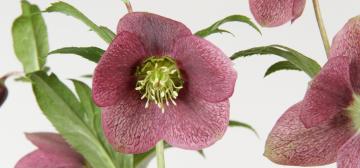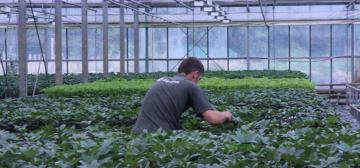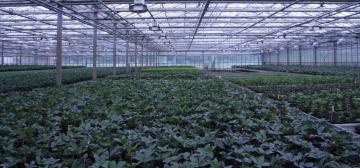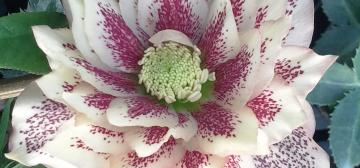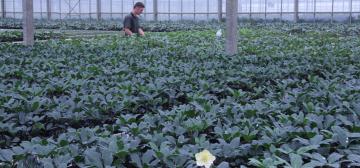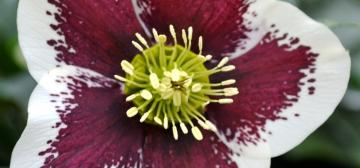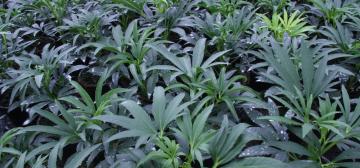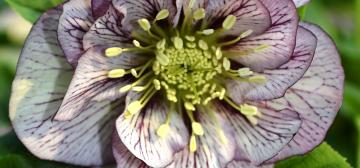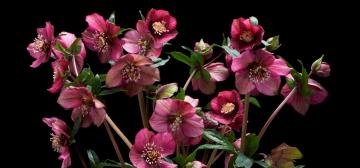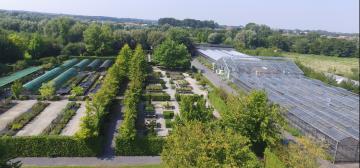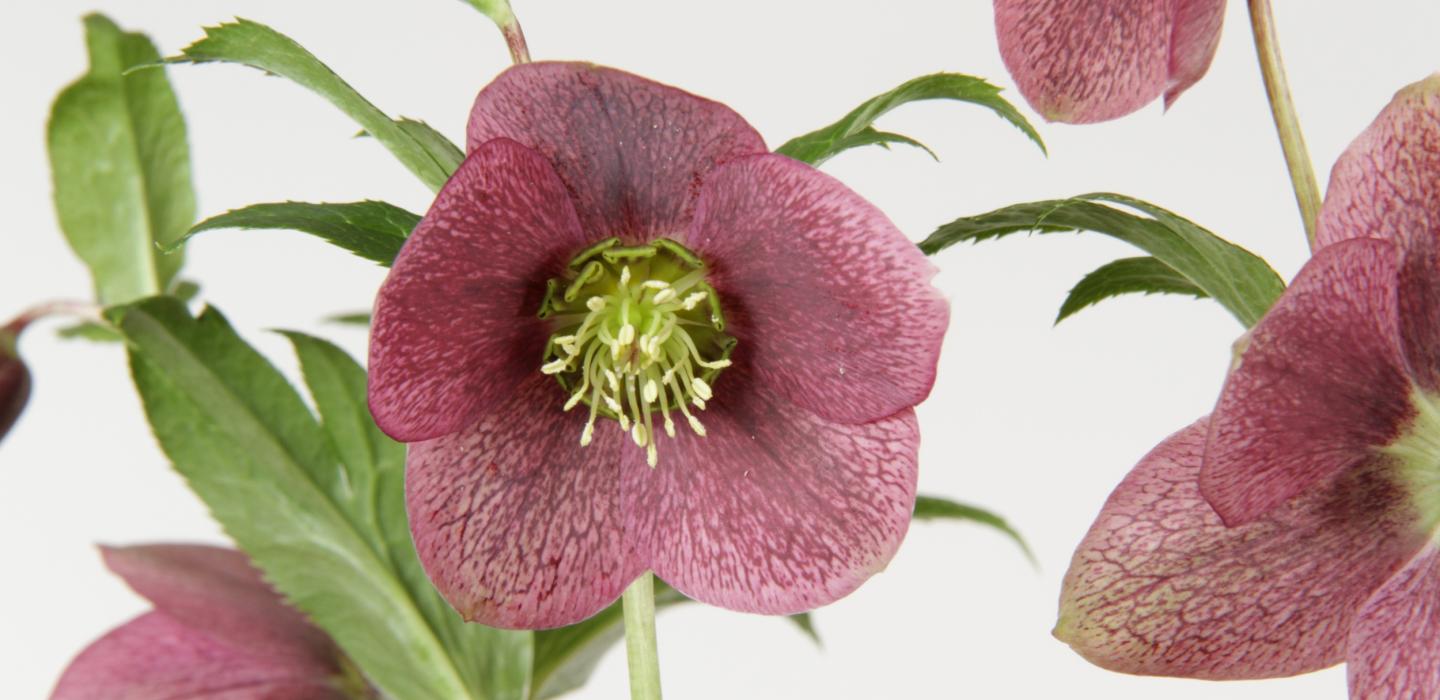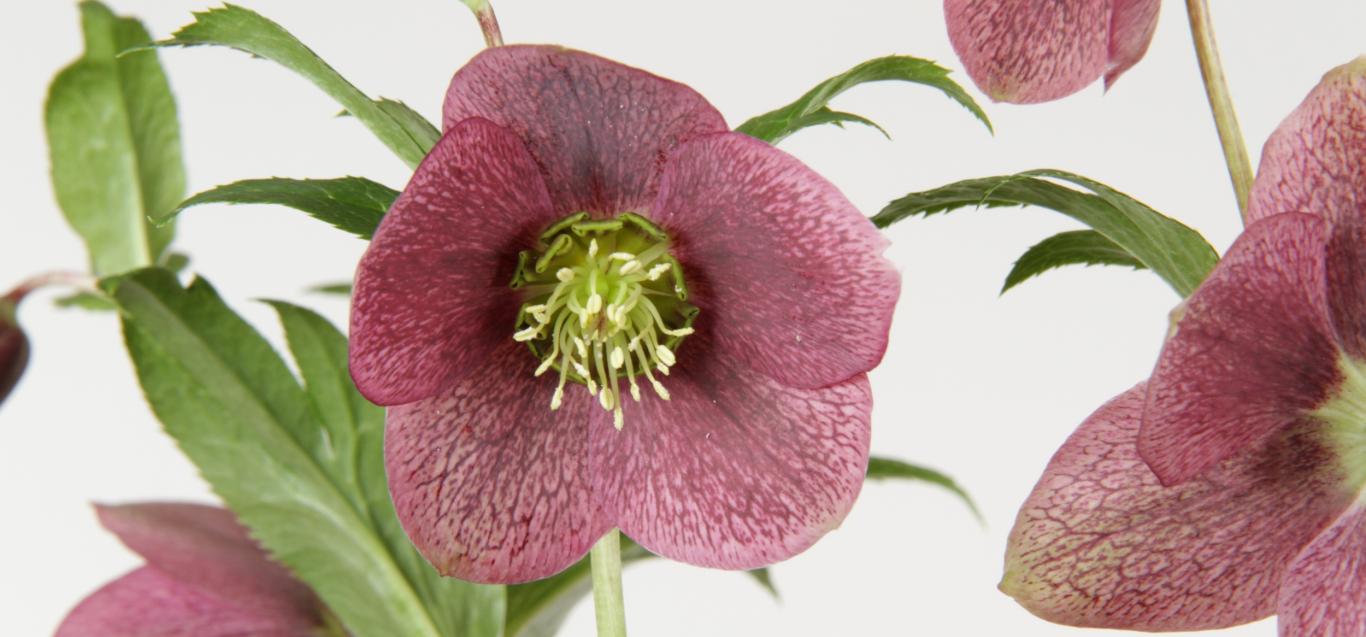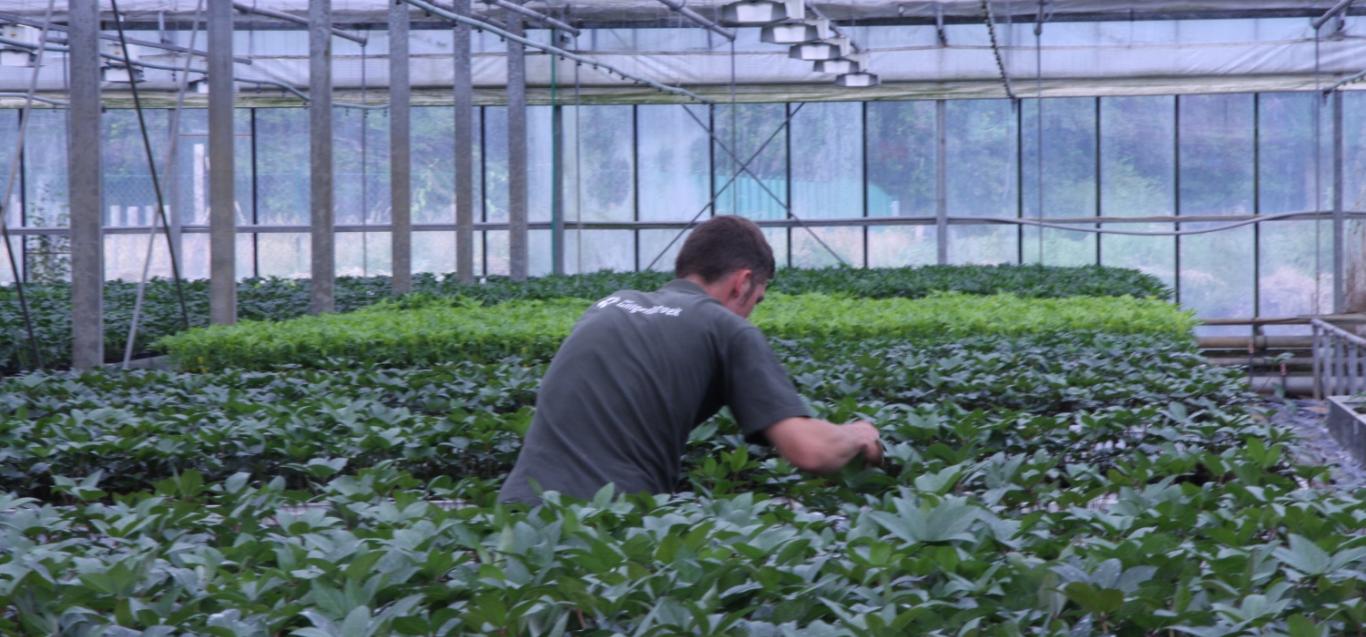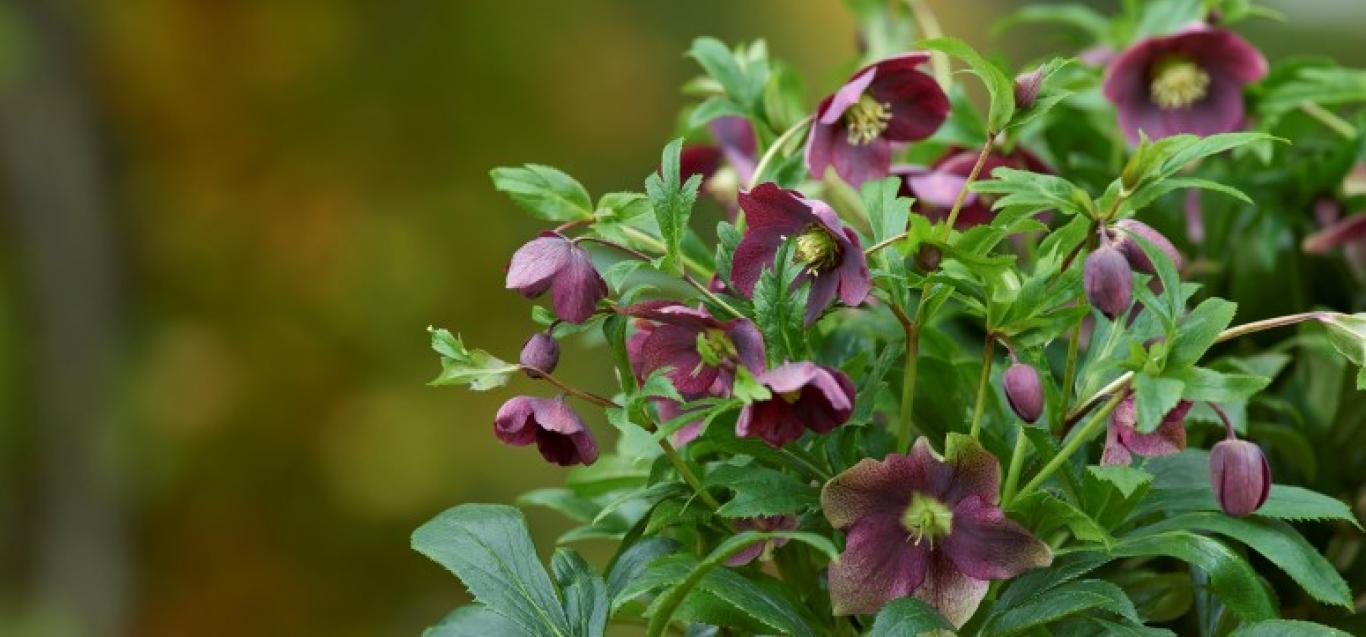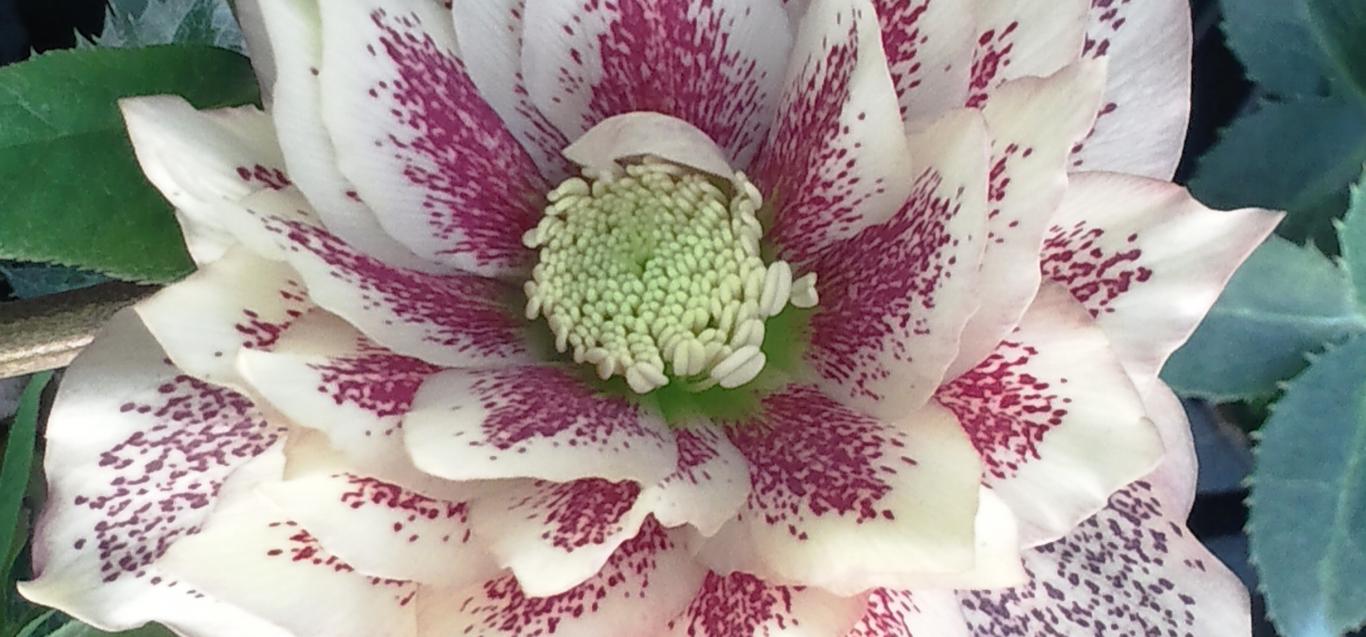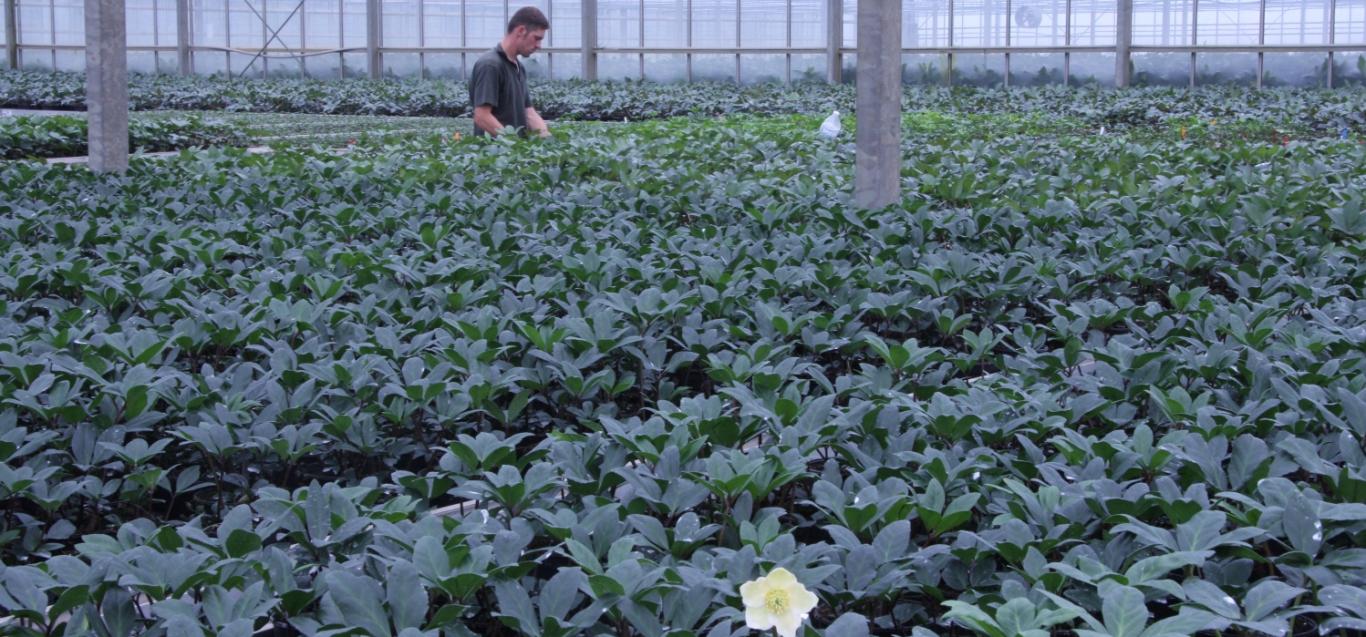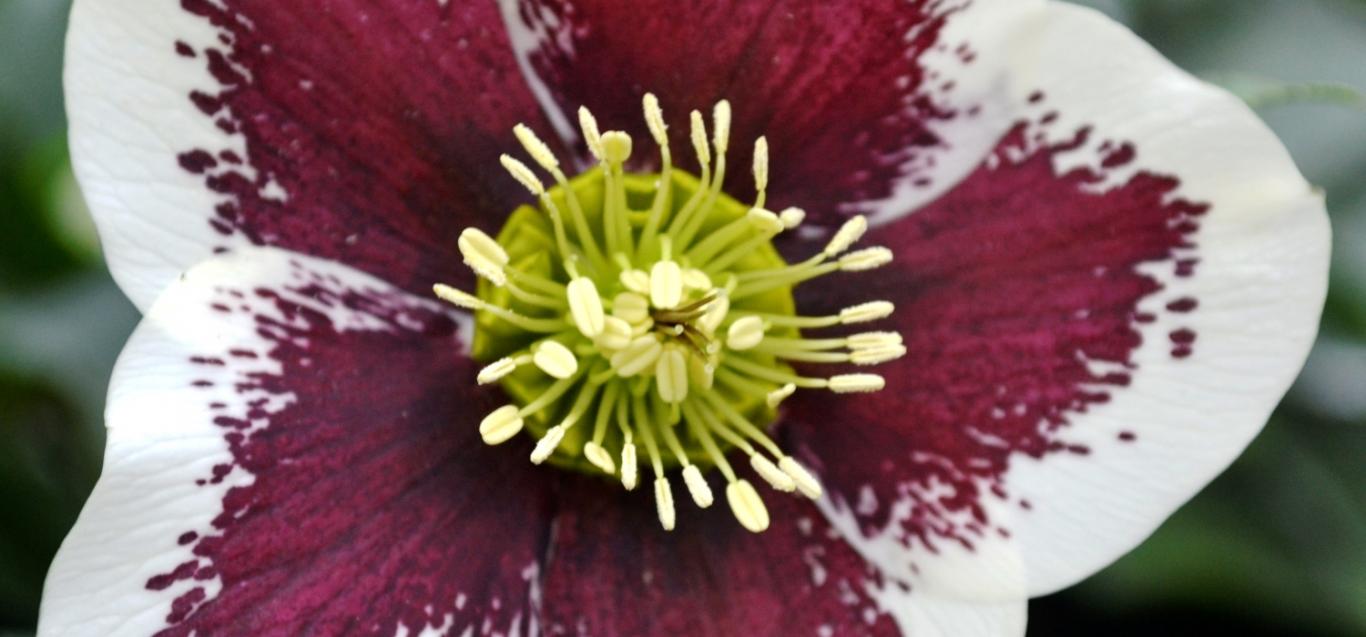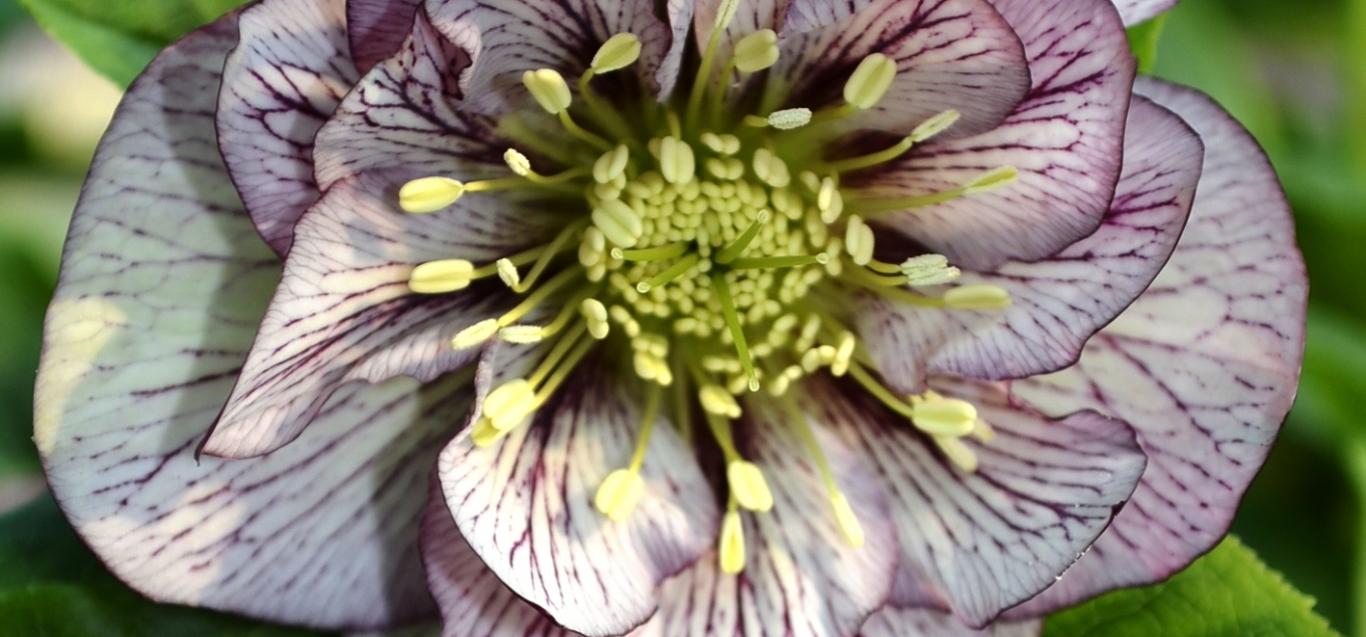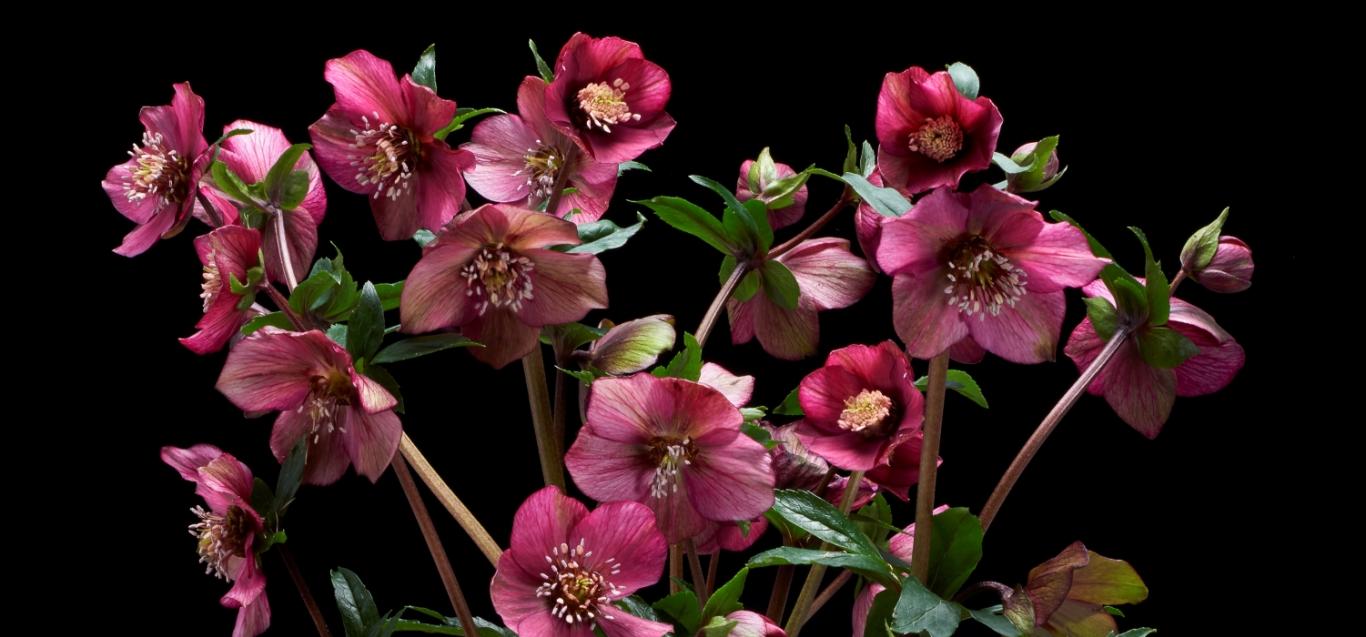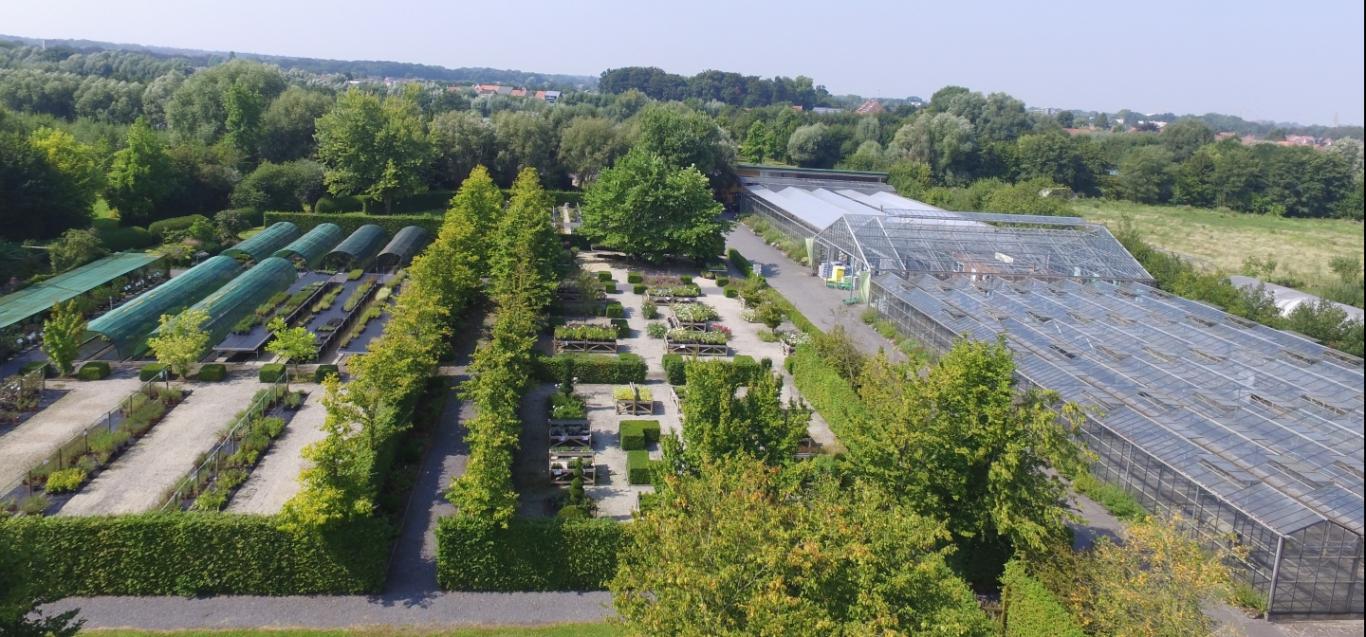A shared passion for Helleborus plants unites the Van Paemels, both emotionally and literally, now that a second generation has enthusiastically joined the family business and secured its future. Its director Thierry, who is a pioneer of Helleborus production, always ensures that he is a step ahead of the market by keeping a close eye on consumer preferences. ‘We have created a florist’s product from a simple perennial plant’, Thierry proudly explains.
Their house speciality: the Helleborus
Founded in 1985 in a natural marsh landscape dotted with 100-year-old pollard willows, ‘Het Wilgenbroek’ nursery specialises in distinctive perennial plants, of a quality designed to satisfy even the most demanding of plant-lovers.
But it was their passion for their favourite plant, the Helleborus, that led Thierry and Anneke Van Paemel to build up such an exceptional Helleborus range. ‘Our business stocks every single variety of Helleborus’, Thierry explains with pride. ‘So we’re working hard to be able to market new varieties as young plants. 15 years ago, we began breeding Helleborus’, Thierry recalls. ‘And we now have around 100 different species in our range.’ Breeding takes place entirely in-house, at the two-hectare Hertsberge site, 7,000 m2 of which is under glass.
‘The new generation of Helleborus already flowers in its first year. This means that it offers excellent added value to the existing flower market, which is always on the lookout for new products. In fact, we have created a florist’s product from a simple perennial plant’, Thierry concludes.
“The sales period of the Helleborus for the Christmas period has also become really important. Breeding focuses strongly on flowering at Christmas. At present we have a few good selections that brighten the Christmas period. Helleborus niger ‘Mon Blanc’ is a Helleborus that has white flowers at Christmas and can be used both indoors and outdoors.”
Perennial plants create a link to the consumer
Helleborus is clearly the company’s core speciality. However, at a separate 10-hectare site, ‘Het Wilgenbroek’ also offers a wide range of perennial plants, which are sold directly to the public. ‘This is deliberate’, Thierry explains, ‘as it enables us to get a sense of what our customers want. By effectively having a direct link to the consumer, we can keep better tabs on developments in the market and can adjust our range to reflect our customers’ wishes.’ And it is clear that ‘Het Wilgenbroek’ attaches great importance to its clientele. As well as having a well-maintained website and a newsletter, it also regularly opens up the business to the public. ‘We hold our open days in February, which is the ideal time to introduce our customers to the beautiful flowers in our Helleborus range.’
The market
‘We supply young Helleborus plants to growers all over the world’ is how Thierry describes his customer base. ‘Key markets include Japan, Scandinavia, France, the United Kingdom, Germany, the Netherlands, Italy, the United States, the former Yugoslavian countries, South Africa, China and South Korea.’
Sustainability and research
A forward-looking company thinks sustainably, and ‘Het Wilgenbroek’ is no exception. The company is a member of VMS (The Flemish Environmental Plan for Ornamental Plant Cultivation) and MPS (Environmental Project on Ornamental Plant Cultivation). VMS is a joint initiative that was set up by trade organisations, and its aim is to encourage producers to use environmentally-friendly growing methods. In order for companies to be able to market themselves in their target markets with an internationally-recognised environmental label, a partnership agreement was entered into with the Dutch MPS Group. Its determined efforts have meant that for the past ten years, ‘Het Wilgenbroek’ has carried the MPS A-label.
‘Het Wilgenbroek’ continually introduces sustainable initiatives. Thierry explains: ‘Tests researching an organic pest control method based on micro-organisms are currently underway at the company. The aim is to strengthen the plants’ root systems.’ An IWT (Institute for Innovation through Science and Technology) research project is also underway. Helleborus is grown in cold greenhouses, which is inherently energy friendly. The current project is chiefly about finding ways of making Helleborus more versatile’, Thierry explains.
The future
‘Helleborus growing is in its infancy and it is clearly an expanding market’, Thierry continues. ‘This means that ‘Het Wilgenbroek’ has a great deal of potential for growth. ‘We specialise in non-bulk products. Furthermore, as a pioneer, we have been able to get a head start in terms of international Helleborus production.’ Tom and Tineke’s children are also well aware of this. Both have enthusiastically joined the business, meaning that the future is secured. Tom opted to study at horticultural college, while Tineke specialised in social science. This means that together, they form the perfect team, both to ensure that the company remains innovative in terms of production, and that it operates in a customer-focused way.
In the meantime, son-in-law Simon D’hoore has also joined the team and is focussing on commercial matters and the company’s marketing.
‘So, what are the next challenges that we face?’ Thierry asks. ‘In terms of growing technique, there is certainly still a great deal to discover. We also want to focus even more on the flow of information to our customers. Producing Helleborus is a specialised cold-frame cultivation process. By sharing knowledge about optimum lighting and fertiliser application, we want to work with our customers to achieve even better results.’
The company in figures:
-
Employees:
-
4 managers
-
4.5 full-time employees
-
Working students during holiday periods
-
-
Plants:
-
Perennials and shrubs destined for sale to the public. Specialised in breeding and growing Helleborus plants destined for the wholesale sector. This concerns both young plants (showcase for other growers) and end product (flowering plants) for garden centres and growers.
-
Total number of plants: a wide range containing around 200,000 plants per year.
-
-
Company surface area:
-
1 ha unheated greenhouses
-
1500 m² container field
-
12 ha soil outside
-
-
Export: 70% of the turnover
-
60% European market
-
10% Asian market
-
30% Belgian market
-
-
Future:
-
Innovations: new research into breeding techniques and production techniques.
-
New markets: Eastern Europe and Russia
-
Investments in additional container fields, improving the breeding greenhouse, optimising the sales areas of the garden centres, knowledge for the 2nd generation and employees.
-
